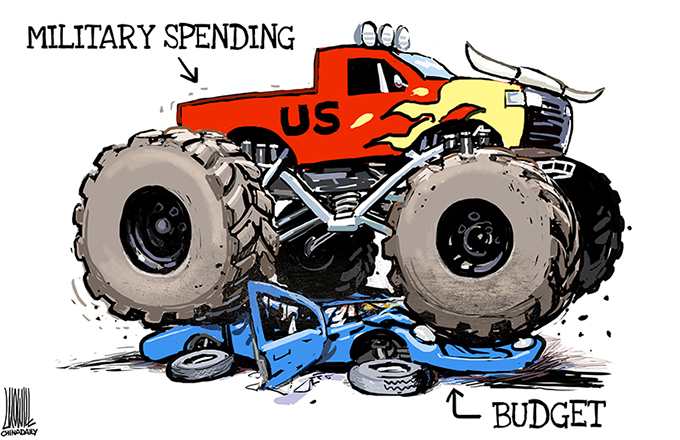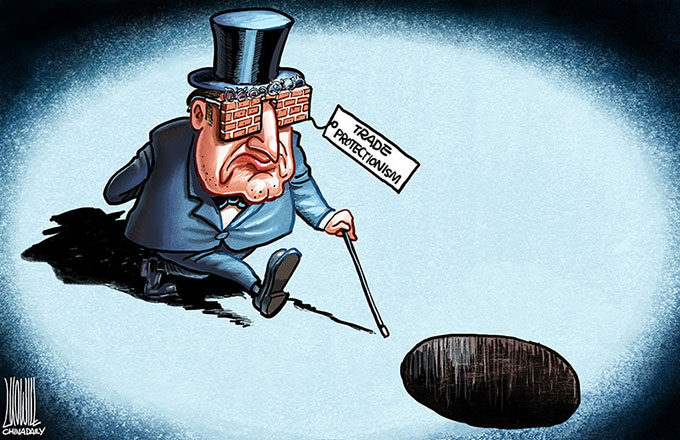US not a victim, but beneficiary of trade
As Commerce Minister Zhong Shan said, when speaking to the media on the sidelines of the ongoing session of the National People's Congress in Beijing on Saturday, a trade war between China and the United States would only cause pain, and benefit neither.
Despite being the world's largest economy, richest nation and mightiest military power, the US administration is fond of saying the country is being treated unfairly.
According to the alternative facts of tweet-loving US President Donald Trump and the accusations of other representatives of his administration, countries that have smaller economies, and which are poorer and weaker, are bullying the US, and it has become the victim of "unfair trade practices that disadvantage American workers, farmers, ranchers, and businesses in global markets", as claimed by the recently released President's Trade Policy Agenda.
Of course, given so many anti-China ideologues within the administration, it comes as no surprise that China is one of the countries the US' accusing finger is pointed at, with the increase in US trade deficit in goods and services with China highlighted in the report released by the US Trade Representative Office at the beginning of the month.
Such finger-pointing has not been rare in the past year or so, as during his presidential election campaign, Trump repeatedly claimed China was the source of the US' economic and trade woes.
However, as his trade policy agenda goes on to note, a rising trade deficit "is not inconsistent with a stronger economy", even though "that has not been the experience of the typical American household".
And there's the rub. The report makes no mention of the benefits trade delivers the US economy. Nor the widening wealth gap in the US, which highlights the fact that those benefits remain firmly grasped in the hands of a few.
Nor is it just a bilateral issue. The US has registered trade deficits with about 100 economies. Which, as many economists have rightly pointed out, are deeply rooted in the US' excessive credit-based consumption and lack of savings.
As a result, the US must import saving from surplus countries such as China, Germany, and Japan, to sustain growth, leading to its colossal trade imbalances.
Although many may think that China cannot live without the US, as Zhong noted on Saturday, "that's only half true", the US also cannot live without China.
Instead of seeking a trade war, the US should cast away its inward-looking mentality and respect the role of the WTO and other multilateral trade negotiation and dispute-settling mechanisms to help build a unified and inclusive global trade regime.

























